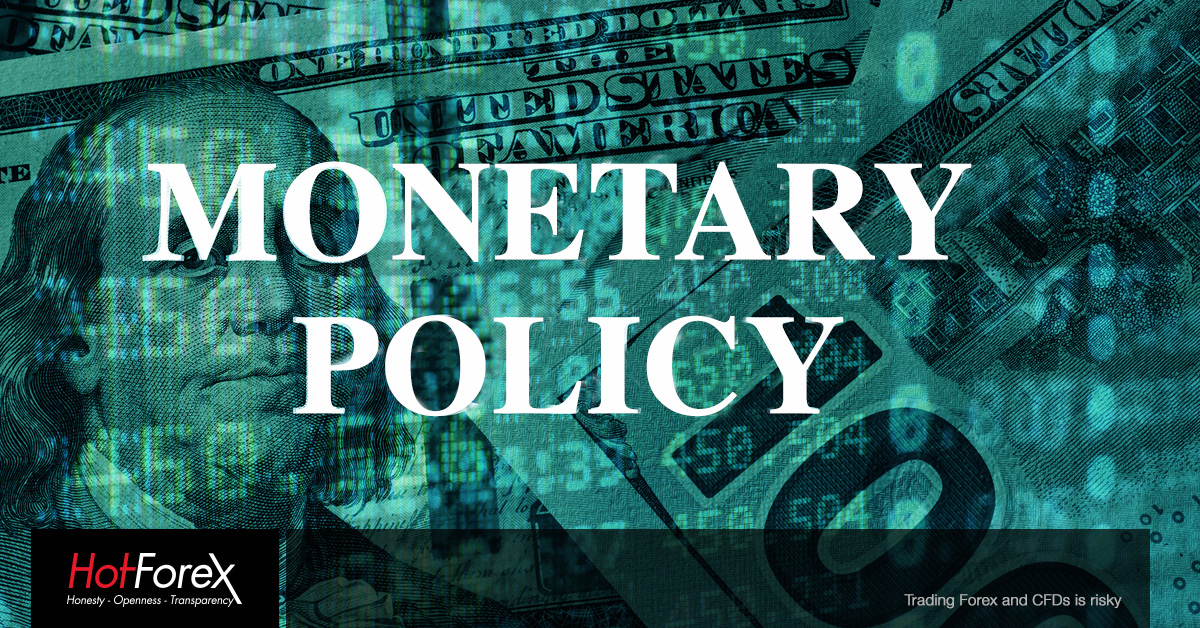After reviewing all potential transmission channels through which monetary policy affects the economy, the priorities a Central Bank can have, the indicators usually monitored, and what unconventional monetary policy does, it is finally time to examine how monetary policy affects exchange rates and the stock market.
To begin with, remember that interest rates set the return an investor should have from putting his money in a bank. As I elaborated in the first post, the higher the policy rate the higher the bank interest rate should be. Hence, an investment in a country with a higher interest rate should, other things being equal, provide a higher rate of return for investors. Consequently, more demand for the currency should be observed, as more investors seek to increase exposure in that country, in essence trying to exploit this interest rate differential through the carry trade. More demand for the currency should thus lead to an exchange rate appreciation.
As policymakers understand that higher interest rates tend to cause an exchange rate appreciation, they tend to exploit this to protect their currencies. For example, the 0.25% interest rate hike in Russia on September 14, 2018 caused an approximately 4% appreciation in the exchange rate. As such, Central Banks could preemptively manipulate interest rates to prevent exchange rate depreciation, especially in the case of Emerging Economies where the depreciation is usually caused by deteriorating macroeconomic conditions. This is the reason behind the surge in the Argentinian policy rate to 60%, as the Central Bank aimed at preventing the exchange rate from depreciating further. Overall, the general conclusion is that higher interest rates tend to suggest that the currency will appreciate, however, this does not always hold. For example, Switzerland has imposed negative interest rates on its currency in order to avoid appreciation but the CHF has nonetheless been appreciating as it has acquired a ‘safe haven’ status.
Monetary policy is also expected to have an effect on the stock market, which is usually the opposite of what is observed for the currency markets. An increase in policy rates should mean that lending costs for firms and consumers are increasing. As such, both consumers and firms will have higher expenses which will go directly to the banking sector and not to the real economy. The decrease in consumers’ purchasing power should mean that they will spend less on goods and services, if they aim to save the same percentage of their income. This should decrease firms’ income which, combined with increased lending costs, should deteriorate business profits. As a result of decreased profits, the stock market is also expected to register declines. Note, however, that if consumers do not maintain a steady savings ratio then the impact on the stock market is not expected to be as large; a likely scenario in this case is that the stock market would drop but rebound in the future.
The same conclusions should hold regardless of whether conventional or unconventional monetary policy is followed. The only difference in forward guidance is that the future increases/decreases in policy rates should be discounted in the market, at least to some extent, and hence reactions should not be as large. This should also hold with asset purchases, as these raise the availability of the specific currency in the world (i.e. increase the supply), which should mean that, with demand remaining the same, the exchange rate should depreciate. In contrast, if the Central Bank starts selling the assets it has acquired, then supply of the currency will decrease and the exchange rate should rise.
With regards to the stock market, asset purchases should increase liquidity in the economy, a large part of which should be invested in the stock market and hence push prices up. If the Central Bank starts selling bonds to retrieve currency from circulation, then the effect on the stock market will depend on agents’ perceptions: if they feel that it is to their best interest to purchase government bonds relatively cheaply and wait for their payment, then funds will exit the stock market and cause a drop; if they feel that the potential for a rise in the stock market is higher than the yield on government bonds then this should not have a strong effect on the stock market.
Overall, this article, which emphasises that monetary policy is an important determinant of exchange rates and the stock market, marks the end of our series on what monetary policy actually does. However, more is to come on the fiscal side, as the next article will elaborate on what fiscal policy actually does. Stay tuned!
Click here to access the HotForex Economic calendar.
Want to learn to trade and analyse the markets? Join our webinars and get analysis and trading ideas combined with better understanding on how markets work. Click HERE to register for FREE! The next webinar will start in:
[ujicountdown id=”Next Webinar” expire=”2018/10/03 14:00″ hide=”true” url=”” subscr=”” recurring=”” rectype=”second” repeats=””]
Dr Nektarios Michail
Market Analyst
HotForex
Disclaimer: This material is provided as a general marketing communication for information purposes only and does not constitute an independent investment research. Nothing in this communication contains, or should be considered as containing, an investment advice or an investment recommendation or a solicitation for the purpose of buying or selling of any financial instrument. All information provided is gathered from reputable sources and any information containing an indication of past performance is not a guarantee or reliable indicator of future performance. Users acknowledge that any investment in FX and CFDs products is characterized by a certain degree of uncertainty and that any investment of this nature involves a high level of risk for which the users are solely responsible and liable. We assume no liability for any loss arising from any investment made based on the information provided in this communication. This communication must not be reproduced or further distributed without our prior written permission.



















